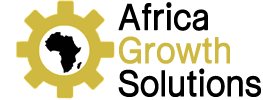In the past decades preceding the 90s, the growth narrative for Africa has been negative. The content has been portrayed in a negative spotlight. The 1960s through to the mid-1980s witnessed severe economic decline. The economic challenges are well documented.
Today, there is an increasing recognition that the continent is on an upward path towards economic, political and social growth and development. Between 2000 and 2014, annual GDP growth in Africa has been 4.6 per cent on average (UNCTAD STAT, 2015). Between the period 2001 to 2010, 6 African economies were among the ten fastest growing economies in the world. Democracy and good governance is increasingly manifesting through routine free, fair and transparent elections which have dominated the political landscapes of the continent with less and less records of violent conflicts experienced during the immediate post independent period. Between 2002 and 2011, Africa’s share of worldwide violent conflict dropped from 55 per cent to 24 per cent (Africa Progress Panel, 2012). The impressive economic and governance performance have both contributed to significant advancement of the human development index indicators, as reported by the Ibrahim index of African good governance. The African society is also becoming wealthier with greater spending power among families and a growing middle class demonstrated by levels of household income, access to electricity and safe water, and Internet penetration. Africa is taking a share of the technology and digital revolution observed from the increased availability of cellular phones and other information and communication technology (ICT) devices.
This impressive record is underpinned by long-term policy, regulatory and governance reforms, which have occurred in nearly all parts of the continent. Consistent with the international trade and investment regimes, countries in Africa have continued to liberalize their trade and investment policies privatizing state owned enterprises, providing generous incentives for private sector participation in all sectors of their national economies and establishing stabilization regimes to protect private interests. These widespread reforms have resulted in increasing improved business environment and with the continent becoming key destination for doing business.
The attractiveness of the continent has intensified competition in the area of trade and investment. There is competition for Africa and African resources between emerging global economic powers like China, Brazil and India. There is also competition between the new emerging economies and their traditional partners like Europe and the United States of America. Within the continent itself, there is a race between governments of various countries for the attraction of FDI. The underlying growing confidence and belief in the continent’s progress together with citizens’ demand for quality service delivery is motivating governments across the continent to conceive, design and implement mega economic and social infrastructural projects.
In spite of the progress made so far, there are still some challenges to overcome in governance and public policy and competiveness in attracting foreign direct investment and international trade to consolidate the accolades the “New Rising Star”, “Africa Rising” and “Multispeed Africa”.
At the national levels, the shift in the concept of governance from the focus on governmental actions to the interaction of state and non-state actors,( recognizing their spheres of influence, power and interests ) to achieve desirable ends in policy making and the distribution of resources through the negotiation of interests remains a challenge. Many of the conflicts have their roots in the lack of appreciation of negotiations as a critical factor in governance. With regards to trade, project financing/investment there is lack of capacity to engage in highly a highly competitive global economy. It is also common knowledge that the cost to national economies in respect of investment flows and loans is high as a result of the challenge of lack of capacity in negotiations.
Africa must compete and it must compete with other regions for a fair share of trade, investment and project finance.
The reality is that, in spite of the huge potential, human capital to transform this potential into social economic development remains a challenge. This programme seeks to contribute to the development of Africa’s human capital.
Programme Focus
- Governance, Public Policy and Development
- Global and Public Affairs
- Anti-corruption, Ethics and Compliance
- Public Sector Reforms
- Transformational Leadership Development
- Sustainable Urban Development
- Geopolitics and International Affairs
- Negotiations in Governance, Conflict, International Trade and Investment
- International Trade and Investment
- Contract Management
- Strategic Partnership Building and Networking
- Financial Management and Accountability
- Project Design, Financing and Delivery
- PPP: Policy, Legislative, Institutional and Regulatory Frameworks
- Digital Transformation
- Innovative Entrepreneurship Ecosystem
- Project Finance Marketplace
- Knowledge Mobilisation (KMb)
- Human Capital Development
- Knowledge Utilisation
- Africa Economic Growth Forum
- Entreprenereship Developement
Programme starts in 2022


